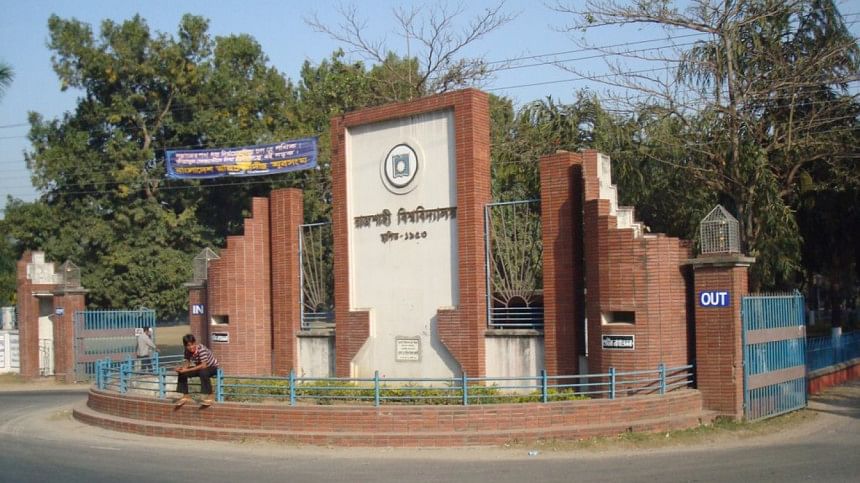Quota vs. merit: Teachers, staff and students at odds at Rajshahi University

At Rajshahi University (RU), programmes and counter-programmes are being held by teachers, officers, employees, and students, centring the issues of quota and institutional privileges.
Teachers, officers, and employees held a sit-in in front of the administrative building today, demanding reinstatement of quota and facilities, while students held a protest rally and assembly in front of the vice-chancellor's residence in favour of a merit-based admission policy.
Professor Moktar Hossain, president of the Officers' Association, said, "Benefits are given in Dhaka, Jahangirnagar, Sylhet, and Chittagong universities; why should we be deprived? We will not return until our rights are secured. If necessary, we will go for a tougher protest."
He further said that institutional benefits are not an unethical demand; they are the rightful claim of teachers' offspring.
Professor Shahidul Islam, president of the Urdu Department, said, "Confusion is being created about our protest. We are not demanding the ward quota, because it has already been abolished in this university. We are only demanding institutional privileges as a fair right."
On the other hand, Fahim Reza, president of the Student Rights Association, said, "Some groups are trying to turn Bangladesh into a quota-dependent, discriminatory state. If one after another, quota is introduced, the dream of building a merit-based nation will be shattered. We want competition based on merit, not pushing future generations backward through discriminatory quotas."
Vice-Chancellor Professor Saleh Hasan Naqib said, "Although teachers and employees are observing work abstention, no formal discussion has yet been held with the administration. We will try to implement whatever is best for everyone through dialogue."
Earlier, on August 16, teachers, officers, and employees raised an 8-point demand at a press conference which included reinstatement of the 'ward quota' in admissions, ensuring campus security, resolving housing problems, improving the transportation system, allocation of personal chambers for teachers and increased research funding, provision of interest-free loans, improvement of the work environment for officers and employees, and ensuring speedy trial of corrupt individuals and perpetrators of repression.

 For all latest news, follow The Daily Star's Google News channel.
For all latest news, follow The Daily Star's Google News channel. 



Comments